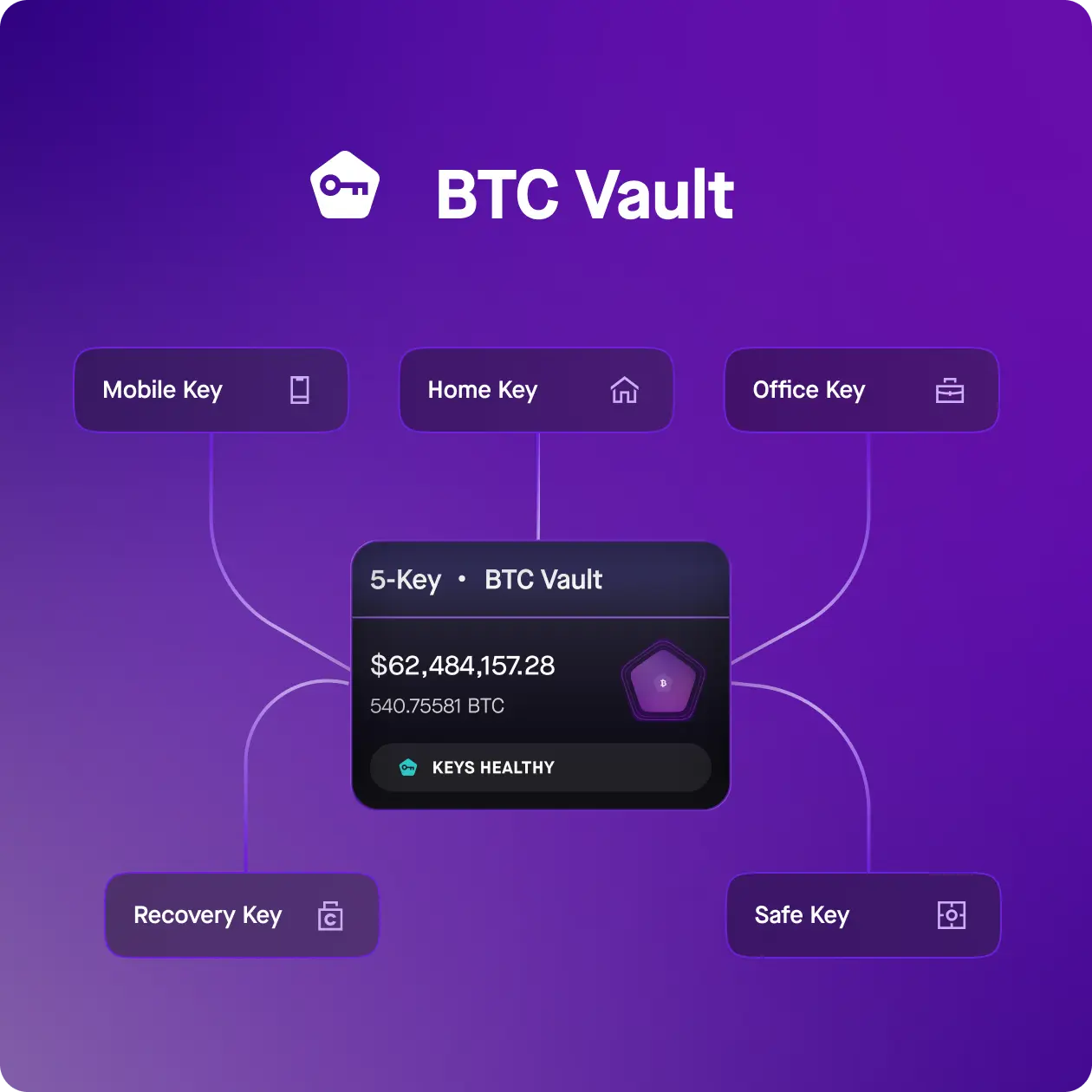Let's chat.
Looking to talk to a Casa expert? We're here to help.
Looking to talk to a Casa expert? We're here to help.
A secure bitcoin wallet is essential to investing in bitcoin. Without taking self-custody with the proper tools, you can’t really be sure you own your bitcoin.
Casa vaults secure your bitcoin with multiple keys for greater protection than a typical wallet can provide. Let’s explore bitcoin wallets and why they matter.
Bitcoin wallets are a wide array of software applications and hardware devices that enable you to manage your keys and sign transactions.
There are several different types of bitcoin wallets with varying levels of security:

Bitcoin and other cryptocurrency have fundamentally different property rights from other traditional assets. To send bitcoin, you need to have the private key for the bitcoin address. You use the key to interact with the cryptography behind bitcoin and sign a transaction.

Until you create your own wallet and withdraw your bitcoin, any bitcoin you think you own is not completely yours. When you first buy bitcoin on an exchange, like Coinbase, the exchange holds the key. Once you withdraw bitcoin off the exchange, the exchange signs the transaction.
This distinction is important. If something bad happens to an exchange or custodian, there is no guarantee your bitcoin will be safe. There have been numerous cases in the history of bitcoin and crypto where exchanges and custodians collapsed, stole customer funds, and lost access to keys. Examples include Mt. Gox, FTX, and Prime Trust.

Real-time support

Simple interface

Professional-grade security







Casa uses multiple keys to secure bitcoin and other assets for greater protection from hacks, accidents, and single points of failure. Most bitcoin wallets have only one private key that you use to sign transactions, which presents a security risk.
These multi-key vaults are a non-custodial wallet, meaning that you are in control of your keys. Casa holds one key, the Casa Recovery Key, for you in case you need to replace a key, and this key is not enough to access your bitcoin. This way, your funds are safe and you don’t have to worry about a risky custodian.
Do you wonder how technical a vault could be? Fear not. Casa makes self-custody easy, and no technical knowledge is required. Each of our vaults is built around our easy, smooth Casa app, and our support team is just an email or call away if you need help. You can take self-custody into your hands, and we’ve got your back.
Learn more about why Casa is different here.

Hardware wallets are safer than leaving your bitcoin on an exchange, but they’re also single points of failure.
Consider: what happens if you lose your hardware wallet or it gets damaged? What if you forget the PIN? Or accidentally wipe it with a firmware update? Seed phrase backups mitigate these risks, but they too are a single point of failure. Many hardware wallets can be hacked by sophisticated thieves. Also, leaving your coins on a single hardware wallet at a single location leaves you vulnerable to threats like robbery or natural disaster.We built Casa to protect bitcoin investors from these dangers. Your bitcoin is protected by multiple devices, so if you misplace your phone, or if your hardware wallet is stolen, your bitcoin will still be completely safe. This resilient design allows you to stay in full control of your bitcoin, and protects you from a laundry list of physical and digital hazards.

Due to the sheer amount of threats to one’s bitcoin, many bitcoin holders will opt for a custodial wallet — one where someone else owns the associated private keys — in an effort to shoulder less risk. If a custodial solution (e.g., an exchange, family office, wealth fund, lender, etc.) holds your bitcoin, it’s their responsibility to secure it.
Unlike custodial bitcoin wallets, a non-custodial bitcoin wallet is one in which you own the associated private keys. By using a non-custodial bitcoin wallet, you gain the freedom to do as you wish with your bitcoin while simultaneously taking on the responsibility of securing it. This is why non-custodial wallets are often called self-custody.
Although it may seem daunting at first, self-custody eliminates third-party risk and ensures that only you have access to your funds. With the right tools, self-custody becomes every bit as convenient as a custodial service, yet significantly more secure. At Casa, we believe self-custody is the best type of bitcoin custody.